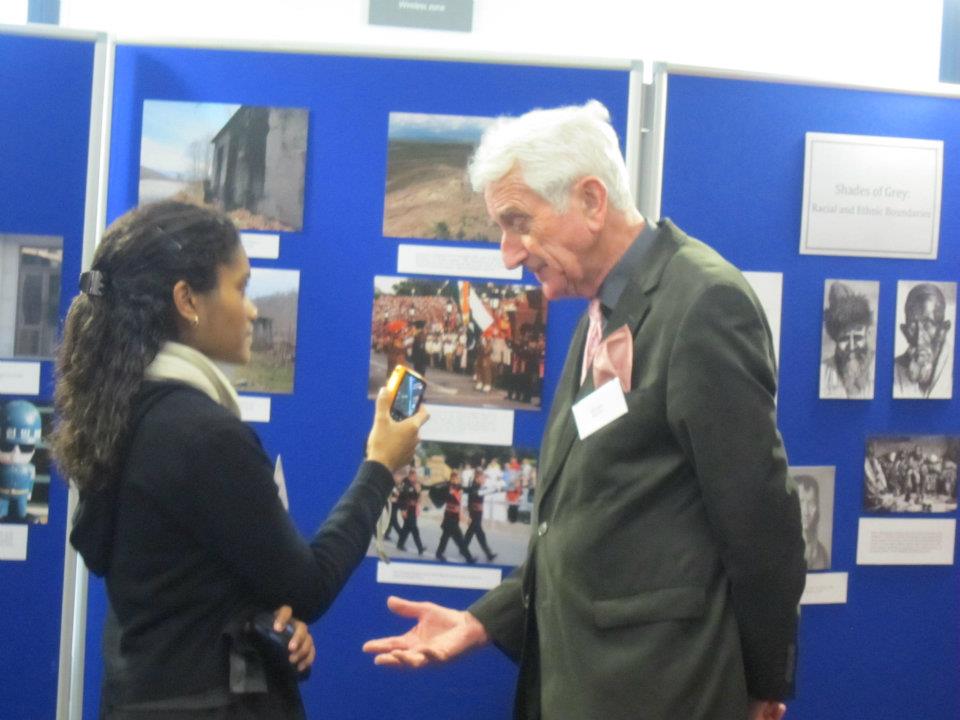SEN Journal: Online Exclusives is delighted to bring you an exclusive interview with Emeritus Professor of Sociology Michael Banton, who has been dedicated to the fields of sociology and anthropology for over 50 years. Professor Banton has written extensively on race relations and race theories.
Karen Seegobin interviewed Professor Banton at the 2012 ASEN Conference, held at the London School of Economics and Political Science on 27-29 March 2012.
1. What are the main themes you’ve been working on this year?
Well, I’ve just written a paper that I’ve sent to a journal about majority sentiment. All the writing in sociology about majorities is seen from the perspective of minorities. We talk about prejudices about minorities and discrimination…and so in talking about the troubles of minorities, we get a picture of the majority that is biased because it is a reflection of the concern with minorities. I’ve been trying to use this notion of social capital as a source of majority sentiment.
2. This reminds me of Dr. Michael Skey’s recent work, National Belonging and Everyday Life.
I know of his work and have a qualification about it. As I understand it, his work is about conscious sentiments, whereas I think the most important kind of sociology is that which gets explanations from the unconscious. The example here is Durkheim. How do you explain suicide? Durkheim had a better explanation of variations in suicide rates than any of his predecessors, as he explained them by reference to the unconscious. And a lot of the work that is being done about English sentiment or Englishness seems to be done at the level of conscious sentiment. But social capital, which can be a variable, is something that may explain the sentiments at the conscious level, but is not conscious itself.
3. What is the best book on nationalism that you’ve read in the past year?
Well one very interesting book is Coethnicity by [James] Habyarimana et al. and they did some very interesting research in Kampala. I’ve written a review of it which should be published soon in the journal Sociology.
4. What new directions are nationalism studies taking?
Well Anthony Smith’s approach to the study of nationalism has been historical, and studies of nationalism will continue within history, always. I think the new phase will have to come from other disciplines. There will be somebody who has interesting new ideas and does some new research. So much of the research that is done at present is documentary research. It’s done in libraries. I think the big change will come when people do experimental research. This book I’ve mentioned to you, Co-ethnicity, that is experimental.
SEN Journal: Online Exclusives would like to thank Professor Banton for taking the time to be interviewed. For more on the topics discussed, please see the following SEN articles, which can be found in the print edition:
Rangel-Ortiz, L. X. (2011), The Emergence of a New Form of Mexican Nationalism in San Antonio, Texas. Studies in Ethnicity and Nationalism, 11: 384–403.
Mock, S. J. (2012), ‘Whose Game They’re Playing’: Nation and Emotion in Canadian TV Advertising during the 2010 Winter Olympics. Studies in Ethnicity and Nationalism, 12: 206–226.
Moes, J. (2009), CosmoPoles: A Mixed-methods Study on the European Identity of Higher-educated Polish Youth. Studies in Ethnicity and Nationalism, 9: 429–451.
Hoeffler, A. (2011), ‘Greed’ versus ‘Grievance’: A Useful Conceptual Distinction in the Study of Civil War?. Studies in Ethnicity and Nationalism, 11: 274–284.

